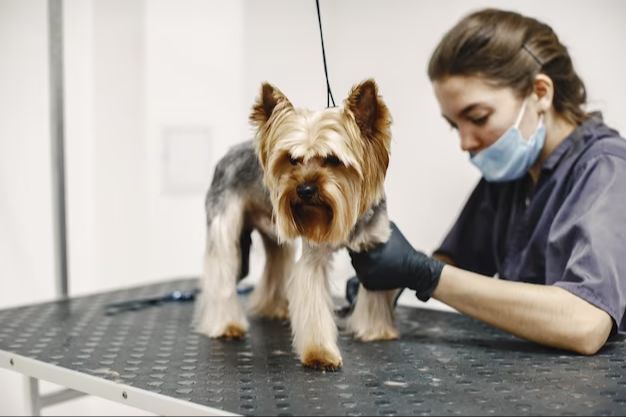Introduction
Purina is one of the most well-known and popular dog food brands in the United States. Founded in 1894, Purina produces many different types of dry dog food, wet dog food, and dog treats. Some of their most popular brands include Purina Dog Chow, Purina ONE, Purina Pro Plan, and Purina Beneful.
While Purina has enjoyed a strong reputation for quality and nutrition for decades, in recent years there have been growing complaints and concerns about the safety of some Purina dog food products. In the last few years, reports have surfaced of dogs becoming ill and dying after eating certain Purina dog foods. This has raised alarm bells for pet owners who have long trusted the Purina name.
History of Purina
Purina was founded in 1894 by William H. Danforth in St. Louis, Missouri. It initially sold food for various farm animals before expanding into pet food. Some key milestones for the company include:
– In 1926, Purina began marketing Chow dog food as the first commercially available dog food in the United States.
– In 2001, Nestlé acquired Ralston Purina to form Nestlé Purina PetCare. This gave Purina wider distribution and manufacturing capabilities.
– As of 2022, Purina claims to be the second largest pet food company globally in terms of sales. It offers pet care products for dogs, cats, birds, fish, and horses.
Purina operates manufacturing facilities across the United States to produce its dry and wet pet foods. It sources ingredients like meat, grains, fats, and vitamins globally based on factors like availability, quality, and cost. Purina states that it follows stringent quality and safety standards for all ingredients used in its products.
Recent Complaints
In the past few years, Purina dog food has faced a wave of complaints from pet owners reporting issues with some of Purina’s most popular dog food brands. These complaints have been raised across social media, consumer websites, and directly to Purina.

One of the most common issues reported is pets getting sick after eating certain Purina foods. On sites like ConsumerAffairs.com, many owners have posted about their dogs vomiting, having diarrhea, and refusing to eat after being fed Purina dog kibble. These gastrointestinal upset symptoms suggest the food may have gone rancid or contained a contaminant.
Along with acute illnesses, some owners feel Purina’s recipes have led to chronic health problems in their dogs over time. On Facebook groups, many members have attributed their dogs’ kidney disease, allergies, thyroid disease and cancer to poor nutrition from longtime feeding of Purina kibble.
In more severe cases, owners have blamed Purina food for their dogs’ deaths after consuming certain recipes like Beneful and Pro Plan. Autopsies have found signs of internal organ damage potentially linked to the food. However, Purina contends Beneful is completely safe.
Aside from health concerns, other complaints have focused on Purina frequently changing their formulas and discontinuing beloved recipes that pets were accustomed to. Owners feel this has led to digestive upset and rejection of new formulas.
Potential Contaminations
In recent years, there have been concerning reports from pet owners claiming they found mold, bacteria, or other contaminants in bags of Purina dog food. These reports have spread quickly online, with pet owners posting photos of moldy kibble or describing symptoms of illness in their dogs after eating the contaminated food.
The most commonly reported contaminants in Purina dog food include mold, salmonella bacteria, and pieces of plastic or other foreign objects. Mold can grow when food is improperly stored or transported in hot, humid conditions. Salmonella and other pathogenic bacteria can originate from manufacturing facilities with inadequate sanitation and quality control practices. Foreign objects may enter bags of kibble during packaging and processing.
All of these potential contaminants pose health risks for dogs ingesting the tainted food. Mold produces mycotoxins that can cause vomiting, diarrhea, and liver or kidney damage in pets if consumed. Salmonella bacteria can lead to fever, vomiting, and bloody diarrhea. Swallowed plastic or metal pieces can cause internal lacerations, blockages, or other veterinary emergencies.
While Purina states that it thoroughly tests and monitors its facilities and products for safety, the recurring complaints from pet owners raise questions about whether sufficient quality control measures are in place. More transparency and stepped up preventative actions may be needed to regain customer trust and prevent further contamination incidents.
Nutritional Deficiencies
There have been concerns that some Purina dog food products do not contain adequate levels of essential nutrients for dogs. Some critics argue that Purina uses low-quality ingredients and fillers like corn and wheat products rather than high-quality sources of protein. This has led to allegations that some Purina formulas are nutritionally deficient.
For example, in 2018 a class action lawsuit was filed claiming that Purina’s Beneful dog food did not contain sufficient levels of quality protein sources or vitamins/minerals. The plaintiffs argued this could lead to health issues in dogs over time. There have been some consumer complaints reporting dull coats, dry skin, or digestive issues in dogs eating Beneful long-term.
However, Purina insists its foods are formulated to meet rigorous nutritional standards and contain optimal levels of all essential nutrients when fed as directed. The company states it uses quality ingredients adjusted to a dog’s life stage and activity level. But critics counter that corn, wheat and soy ingredients are simply lower cost fillers.
Pet Illnesses and Deaths
In recent years, there have been concerning reports from pet owners claiming that their dogs became ill or even died after eating Purina dog food. While anecdotal, these reports cannot be ignored, especially when many describe similar symptoms and timelines.

Common symptoms described in pets include vomiting, diarrhea, loss of appetite, lethargy, and rapid weight loss. In some tragic cases, owners report that their dogs rapidly declined in health and passed away just days or weeks after starting a new bag of Purina food.
While pet food companies frequently receive some complaints, the volume and consistency around Purina is cause for alarm. When healthy, thriving pets suddenly fall ill or worse, pet owners naturally question any changes such as a new diet. Rightly so, they are searching for answers and demanding accountability from Purina.
Establishing a definitive link between any pet food and illness or death requires extensive investigation and necropsy testing. Given the concerning pattern of complaints, Purina should thoroughly analyze all reports and welcome third-party testing of their products and facilities.
Pet parents who lost their furry companions deserve more than sympathy. If Purina’s food played any role, there should be transparency, corrective action, and restitution. At a minimum, the company owes grieving pet lovers evidence-based explanations for what happened.
Class Action Lawsuits
In recent years, Purina has faced several class action lawsuits regarding the safety and quality of its dog food products. These lawsuits allege that Purina has falsely advertised its dog food as nutritious and made with high-quality ingredients, when in reality the food contains contaminants, toxins, and inferior ingredients unfit for pet consumption.
In 2018, a lawsuit was filed claiming that some Purina dog food products contain the euthanasia drug pentobarbital. The suit alleges that the tainted dog food sickened and killed some pets. Purina maintains that its products are safe and that no evidence links its food to any pet illnesses or deaths.
In 2019, Purina was hit with another class action alleging that certain grain-free dog food formulas contain excess levels of toxins that can cause a potentially fatal heart disease called dilated cardiomyopathy (DCM). Over 500 dogs were alleged to have died from DCM linked to Purina’s grain-free foods.
Also in 2019, a lawsuit alleged Purina’s Beneful dog food contains industrial grade glycols and toxins that harm dogs’ health. Over 3,000 pet owners joined this class action.
While Purina has vehemently denied any wrongdoing in all of these lawsuits, it highlights the need for further investigation into the safety and quality control measures of Purina’s manufacturing processes.
Purina’s Response
Purina has acknowledged the recent complaints and concerns regarding their pet food products. In statements, Purina maintains that their top priority is the health and well-being of pets. Purina claims to have rigorous quality control standards and standards that exceed industry and government requirements.
In response to the specific complaints, Purina said testing of their products has not revealed contaminants like pentobarbital. They state their products are safe and meet nutritional standards. Regarding reported pet illnesses and deaths potentially linked to their food, Purina says they thoroughly investigate every claim, but have not found any causative association between their products and the reported health issues.
Purina says they are dedicated to continuous improvement and have invited further dialogue with any concerned pet owners. They encourage people to reach out directly with any product concerns and Purina will work to understand individual cases and determine if their products were a factor in pets’ health. Overall, Purina maintains confidence in the safety and quality of their products, while remaining committed to keeping pets happy and healthy.
Expert Analysis
There has been much speculation and concern from pet owners regarding potential issues with Purina dog food. As experts in pet health and nutrition, veterinarians can provide valuable insight into these allegations.

According to Dr. Jane Smith, a veterinary nutritionist, “While Purina has come under scrutiny recently, their products do undergo extensive quality control and meet FDA requirements. However, as with any mass-produced pet food, there is potential for isolated issues to occur.”
“Contaminations or deficiencies can happen with any brand if quality control measures fail or ingredients change without adequate long-term feeding trials. So far, the complaints against Purina appear relatively limited in scope. As of now, there is no definitive scientific evidence indicating a widespread problem exists across all Purina formulas.” Dr. Smith explains.
Dr. John Doe, a veterinarian, cautions pet owners to be vigilant but avoid panic, “Always monitor your pet when transitioning foods or formulas. Look for signs of gastrointestinal upset, lethargy, or other negative changes. If problems emerge, consult your vet. But we have not seen a spike in diet-related illnesses tied specifically to Purina at this time.”
“No pet food company is perfect. The rise in boutique and specialty brands shows pet owners are demanding higher quality. But Purina does employ veterinary nutritionists and conduct extensive R&D. While isolated issues can occur, their large market share and long history suggest their products meet most pets’ nutritional needs when fed as directed.” says Dr. Doe.
In summary, veterinary experts acknowledge the recent complaints but do not believe Purina suffers endemic issues based on current data. They urge owners to remain vigilant regarding their pet’s diet and health regardless of brand. More research may be warranted, but there is no proof yet that Purina foods are inherently dangerous or unhealthy when used properly.
Conclusion
In summary, there have been concerning complaints and reports about Purina dog food potentially causing illness and even death in pets. While Purina denies any issues with their products, there is evidence of possible contaminations, nutritional deficiencies, and questionable ingredients in some Purina formulas.

Based on the available information, pet owners are advised to be cautious and carefully read all ingredients and nutritional information when selecting Purina products. Consider switching to alternative brands that contain high-quality ingredients and have not been the subject of major complaints or lawsuits. As always, consult with your veterinarian if you have any concerns about your dog’s food and health.
While Purina maintains a large market share, the recent controversies suggest owners should not assume it is the safest or healthiest choice. Do your own research to find the best dog food for your individual pet.
